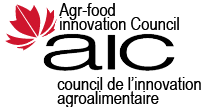|

Canadian agriculture and the world
of horticultural science benefited in many important ways from the life
and work of Dr. C.J. Bishop who passed away in Ottawa on October 31, 2006.
Raised in a fruit  growing family in the Annapolis Valley of Nova Scotia
and educated as a botanist and geneticist (PhD Harvard University 1947),
Bishop was amongst the first to apply irradiation breeding techniques to
apple. He also made important contributions to the development of
early-ripening tomato cultivars for
Eastern
Canada
. While primarily a scientist and research manager, his
lifelong interest in horticultural crop improvement through cytology and
genetics was passed along to the next generation of plant breeders. He
found a way to balance his early work as a fruit breeder and ultimately
Superintendent of the Kentville, Nova Scotia Agricultural Experiment
Station (1947-1958) with being a professor of genetics at
Acadia
University
.
Later in life he was to be feted by
Acadia
University
with an Honorary Doctorate of Science. growing family in the Annapolis Valley of Nova Scotia
and educated as a botanist and geneticist (PhD Harvard University 1947),
Bishop was amongst the first to apply irradiation breeding techniques to
apple. He also made important contributions to the development of
early-ripening tomato cultivars for
Eastern
Canada
. While primarily a scientist and research manager, his
lifelong interest in horticultural crop improvement through cytology and
genetics was passed along to the next generation of plant breeders. He
found a way to balance his early work as a fruit breeder and ultimately
Superintendent of the Kentville, Nova Scotia Agricultural Experiment
Station (1947-1958) with being a professor of genetics at
Acadia
University
.
Later in life he was to be feted by
Acadia
University
with an Honorary Doctorate of Science.
However, it was between 1960 and 1985 that Dr. Bishop was in a position to
profoundly influence horticultural science and industry across
Canada
.
Based in
Ottawa
,
he served
Canada's
re-organized federal department of agriculture (re-named Agriculture
Canada
and then Agriculture and
Agri-Food
Canada
)
as a research coordinator, first focussing completely on horticultural
crop research and then on all crop research supported by the Department.
He proved to be highly influential in determining both direction and
quality of plant science research within the organization. Furthermore,
through leadership of
Canada's
Expert Committee on Horticulture, he had great influence on the entire
horticultural research, education and extension community of
Canada
.
A quiet thoughtful man, Dr. Bishop worked tirelessly and strategically to
strengthen horticultural science and industry in
Canada
.
He was particularly influential in mentoring the Canadian Society for
Horticultural Science for which he became a Life Member and Honorary
President in 1968. The C.J. Bishop Award honours the best paper on
horticulture in the Canadian Journal of Plant Science. His service to
horticultural science and industry nationwide was recognized by the
Canadian Horticultural Council with its Award of Merit (1972) and by Life
Membership in 1985. Bishop was
the first Canadian scientist to become a Fellow of the American Society
for Horticultural Science (1968). The Agricultural Institute of Canada
recognized him as a Fellow in 1977. His ongoing academic interest in
cytology and genetics led to his election as President of the Genetics
Society of Canada and a term as President of the Science Section of the
Royal Society of Canada. He was recognized as a Fellow of the Royal
Society in 1958.
As
Canada's
representative to the Council of the International Society for
Horticultural Science, Dr. Bishop played an important part in the early
development of ISHS. While unable to travel to the inaugural Council
meeting (The Hague, 1960), he was an active participant in meetings at
Brussels
(1962),
Edinburgh
(1964) and Beltsville (1966) where the present-day form and function of
ISHS was largely established. He continued in this role until 1980. He was
profiled in Chronica Horticulturae
in the July, 1970 issue.
What the historical record does not show about Charlie Bishop is the fact
that he was a well-mannered gentleman who always listened carefully and
responded generously. He was an avid gardener and collector of orchids. He
was an enthusiastic amateur musician (piano), enjoyed the sport of curling
and was an accomplished bridge player. He served his community through
Rotary International where he was an Honoured Life Member of the West
Ottawa Club. He is survived by Kay, his wife of 55 years, and by their son
John Bishop of
Lanark
,
Ontario
.
Prepared
by Dr. Norman E. Looney
|









 growing family in the Annapolis Valley of Nova Scotia
and educated as a botanist and geneticist (PhD Harvard University 1947),
Bishop was amongst the first to apply irradiation breeding techniques to
apple. He also made important contributions to the development of
early-ripening tomato cultivars for
growing family in the Annapolis Valley of Nova Scotia
and educated as a botanist and geneticist (PhD Harvard University 1947),
Bishop was amongst the first to apply irradiation breeding techniques to
apple. He also made important contributions to the development of
early-ripening tomato cultivars for